QuestionmY FIRST QUESTION IS MY FAT TAIL I THOUGHT HAD SHED ABOUT 2 WEEKS AGO I NOTICED WHAT LOOKED LIKE SNAKE SKIN IN HIS CAGE AND HE LOOKED MORE BROWN THAN RED BROWN BUT TONIGHT HE LOOKS GRAY ALMOST WHITE LOOKING BUT HE ATE AND MOVED FINE, HE HAS A GOOD TEMP AND HUMIDITY STAYS BETWEEN 70-80%??? OUR BEARDED DRAGON WAS GIVEN TO US AND HE HAS A NIGHT BULB AND A HEAT BASKING BULB, SOME SITES SAY HE HAS TO HAVE A UVB OR UVA LIGHT HE IS ALMOST 2 YEARS OLD DO WE NEED TO GET HIM THE UV LIGHT BULBS, ALSO HE EATS APPLES CHOPPED CELERY LEAVES AND ROMAINE LETTUCE AND ABOUT 8 CRICKETS A WEEK HE USED TO ONLY EAT BEARED DRAGON FOOD BEFORE HE WAS GIVEN TO US BUT I CAN TGET HIM TO EAT ANY BRAND ONLY THE VEGGIES BUT WE HAVE HAD HIM SINCE DEC 08 AND HE HAS ONLY POOPED 5 TIMES ABOUT ONCE A MONTH ITS NO SOLID BUT NOT LOOSE KIND OF IN THE MIDDLE. IS HE O.K OR IMPACTED NO OTHER SIGHT HAS BEEN ABLE TO ANSWER MY (POOP) QUESTION AND THE PETS STORES AROUND HERE DONT HAVE BEAREDED DRAGONS? PLEASE HELP WE WANT HIM TO LIVE ALONG TIME? THANKS BUNCHES
AnswerHi Amanda, Your descriptions of your fat tail (both the shed skin and the whitening of the skin) both sound like a normal shedding process. It sounds like he had a bit of a growth spurt to have two sheds so close together.
Rather then trying to keep the humidity that high in the entire tank I would strongly suggest that you use a humidity chamber instead. This would allow your gecko to access a more humid area when he needs one rather then being exposed to constant high humidity. A 70 - 80% humidity is closer to that of a tropical rain forest rather then the west African savannah or woodland that is the native range of fat tail geckos. They live in the drier scrublands and savannahs of West Africa but occupy cooler and more humid crevices and burrows during the heat of the day. By providing a moisture chamber and leaving the rest of their enclosure dry you more accurately duplicate their natural environment. Reducing the humidity in the rest of the cage will also reduce the risk of bacterial and fungal infections from developing.
A humidity chamber can be made from any small plastic container. Just cut a small entry hole into it and add an inch or so of a moisture retaining substrate like moss.
I've linked a few caresheets for fat tails. They all mention that fat tails inhabit the drier, scrubland and savannahs of West Africa.
http://www.anapsid.org/fattailgecko.html
http://www.centralpets.com/animals/reptiles/lizards/lzd2670.html
http://www.reptilepets.co.za/rp451515.htm
There are a few changes you can make with your bearded as well that will help him live a longer and healthier life. It is strongly recommended that you get him the proper UV lighting. A good quality UVB bulb like the Reptisun 10.0 by Zoomed will provide both UVA and UVB. The lack of UVB affects his ability to absorb calcium from his diet and can result in a condtion called metabolic bone disease. It is something that develops slowly and everything may seem fine until it reaches the crisis point which may result in hind leg paralysis or seizures. You can also help to avoid this situation by supplementing his diet with powdered calcium and vitamin D3 dusted onto his insects and salad about once per week (there are several brands available for reptiles).
There are several factors that can affect the gut transit time ie. how requently he poops including diet, hydration, calcium levels and temperature. He should have a basking temperature of around 100 F to effectively digest. You can also give him a weekly soak in just slightly warm water. That will encourage him to drink and frequently will trigger a bowel movement as well. Beardeds are quite prone to problems with intestinal parasites ( mostly coccidia and pinworms). These tend to produce very frequent, watery and foul smelling stools rather then the partially formed ones that you are describing. It is usually recommended to have all new dragons tested for parasites regardless. Your vet will need a fresh stool sample for this and the exam should cost around $20 - 25. Seeing as your bearded is producing regular (if infrequent) stools I don't think you need to be worried about impaction.
You will get a much better nutritional balance by adding some variety to his diet. Try to vary the cricket portion with some large mealworms or silkworms instead.
For his salad, dandelion, kale, escarole, collard or mustard greens are some of the other more nutritious options.
This is one of the best sites for bearded dragon care, authored by a professor of biology and bearded dragon owner.
http://www.bio.miami.edu/ktosney/file/BDcare.html

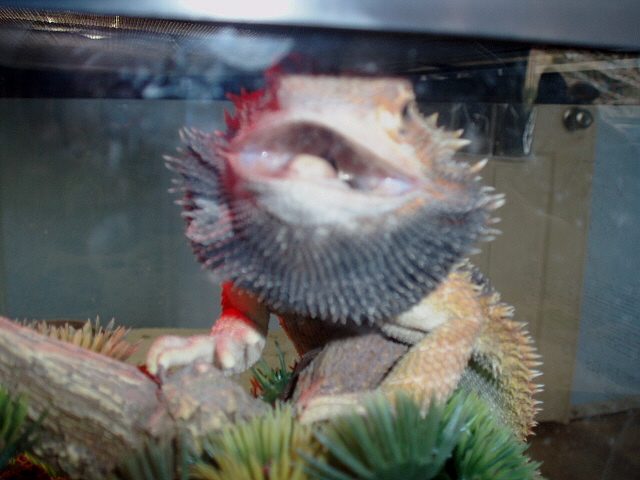 Beardier Flaring Beard
Question
Ryuu
I have a Bearded Dragon, probably hitting
Beardier Flaring Beard
Question
Ryuu
I have a Bearded Dragon, probably hitting
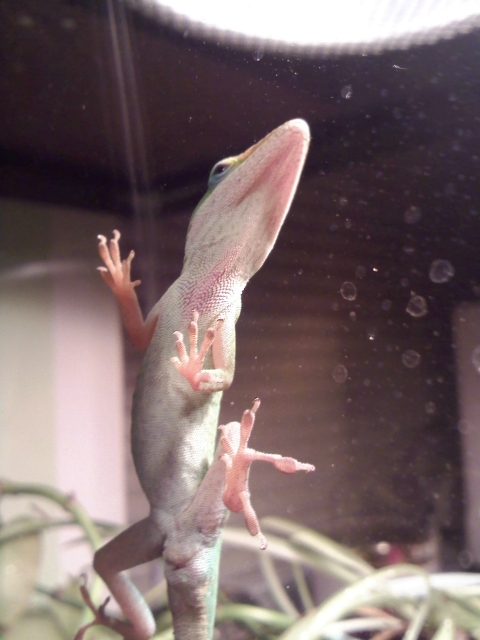 Anole Parasites?
Question
Roger
Hi Donna,
I just happened to stumble u
Anole Parasites?
Question
Roger
Hi Donna,
I just happened to stumble u
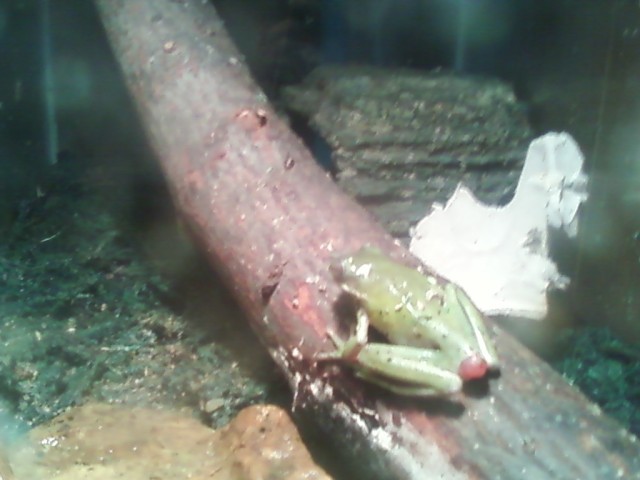 Whats wrong??
Question
Bump thing...
I have a tank full of Barking Tr
Whats wrong??
Question
Bump thing...
I have a tank full of Barking Tr
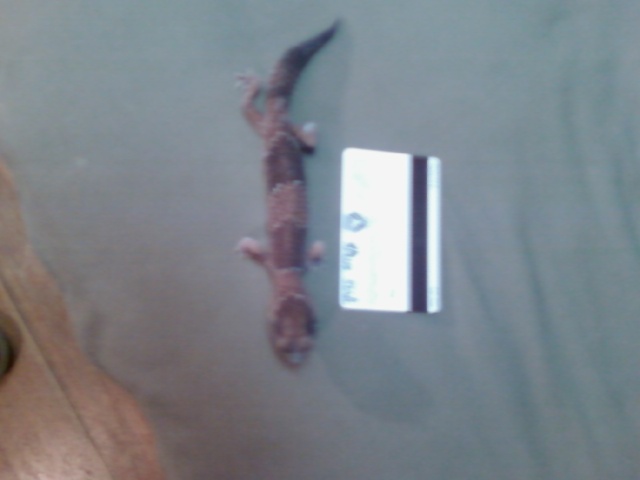 Fat-tailed gecko not eating
QuestionQUESTION: Hi Tracie,
I saw a previous answer y
Fat-tailed gecko not eating
QuestionQUESTION: Hi Tracie,
I saw a previous answer y
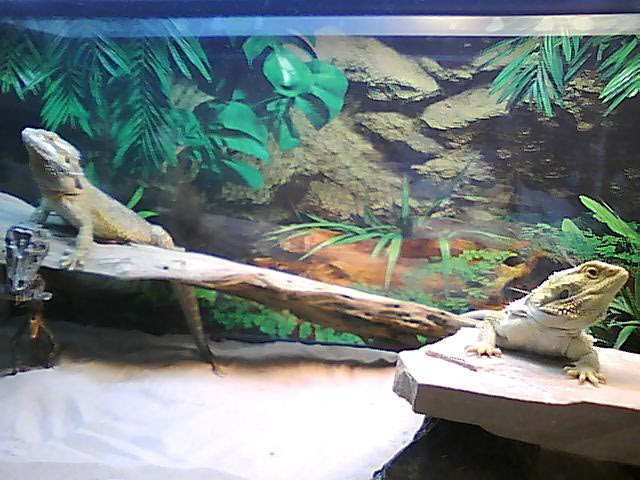 Hi Tracie,please read(egg help)
QuestionQUESTION: Hey Tracie,how you doing?Its been a l
Hi Tracie,please read(egg help)
QuestionQUESTION: Hey Tracie,how you doing?Its been a l